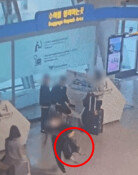50th anniversary of normalization of South Korea-Japan ties
50th anniversary of normalization of South Korea-Japan ties
Posted June. 22, 2015 07:41,
On June 22, 1965, a signing ceremony was held at Japanese prime minister`s official residence to sign the Treaty on Basic Relations between South Korea and Japan and four other pacts. It was the venue for reconciliation where the two nations were born again as close neighbors after 14-year-long negotiations for formalization of the South Korea-Japan ties with intervention of the U.S. in October 1951, when the Korean War was still in progress. However, the current relations between the two nations are so frosty that it is not too much to call it the worst ever since the establishment of the diplomatic ties. Although last year saw a trade volume of 86 billion U.S. dollars and personal exchanges of more than 5 million people between the two nations, conflicts that strain South Korea-Japan ties have raised frequently.
The normalization of South Korea-Japan ties was a result of the necessities of the both nations. South Korea had desperately needed economic aids from Japan for its economic development and Japan wanted to reconcile with South Korea for the national security as North Korea joined hands with the Soviet Union and China. However, the Treaty on Basic Relations between Japan and South Korea had left a bone to pick as the treaty did not address Japans colonial rules. Strict recognition on wars and human rights are required these days. Japan must know that its national reputation is not damaged but elevated by recognition and apology on the anti-human crimes that it committed in the past.
Despite active exchanges in the private sector, what has strained the ties between South Korea and Japan was words and behaviors of leadership. Japanese Prime Minister Shinzo Abe paid tribute to Yasukuni Shrine where Class-A war criminals are honored at the first anniversary of the administration in December 2013, pouring cold water over the South Korea-Japan relations. Afterwards, Abe has continued behaviors and words to deny Japans wartime atrocities, shaking the reconciliation of the two nations including the Murayama Statement. South Korea also played a part to worsen the diplomatic ties. Former President Lee Myung-bak has provoked Japan with remarks on the Emperor of Japan and visit to Dokdo, which is at the center of territorial dispute with Japan, at the end of his term in office in August 2012. President Park Geun-hye also put the matter of history first, despite her recent commitment to separate Japans past wrongdoings from other pending issues.
Expectation is growing as there are some positive movements around the 50th anniversary of the normalization of South Korea-Japan diplomatic ties. South Korean Foreign Minister Yoon Byung-se met with his Japanese counterpart Fumio Kishida on Sunday during his first visit to Japan since the Park Geun-hye administration was established. In regards to UNESCO World Heritage designation of facilities during the Japanese industrial revolution period, the two foreign ministers reportedly agreed to specify that people from Joseon were forced to labor in seven Japanese facilities including Hashima coal mine. Foreign ministers of South Korea and Japan had talks over how to resolve the issue of so-called Comfort Women, forcibly conscripted sex slaves for Japanese troops, which has been boiled down to Japans apology and compensation.
Another welcoming news is that Japanese Prime Minister Abe is to visit a ceremony for the 50th anniversary of diplomatic ties normalization at the Korean Embassy in Japan today. President Park needs to attend a ceremony hosted by Japan to celebrate the 50th anniversary in Seoul, showing in action that South Korea wants to reconcile with Japan and hold a summit talks.
As confirmed with the survey conducted by the Dong-A Ilbo and the Asahi Shimbun, the majority of people in both nations want reconciliation. The governments in South Korea and Japan have responsibility to make joint efforts to take the 50th anniversary of diplomatic ties formalization as an opportunity to shift from feud to reconciliation. To restore the relations between South Korea and Japan, a starting point must be Japans self-reflection on and apology for its colonial rules. In order to establish "South Korea-Japan partnership for 50 years in the future," which was proposed by President Park during her speech on Independence Movement Day on March 1, South Korea must stop putting all the blames on Japan and show sincere efforts on its side. Abes statement to mark the 70th anniversary of the end of World War II will become a turning point for the relations between South Korea and Japan. Germany and France have settled the old historical scores and become neighbors to trust and collaborate with each other. The long-standing dispute between South Korea and Japan neither serves for the national interests of the two nations nor contributes to stability and peace in the Northeast Asia.







